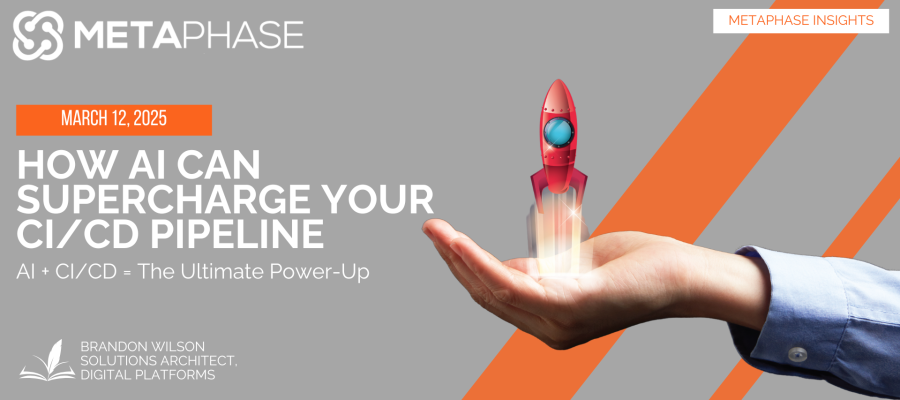
Continuous Integration and Continuous Deployment (CI/CD) pipelines have become the backbone of modern software development, enabling teams to deliver high-quality applications rapidly and efficiently. However, managing CI/CD pipelines at scale can introduce complexities that impact performance, reliability, and security. AI-driven automation can help streamline processes, optimize efficiency, and enhance overall software quality.
The Role of AI in CI/CD Pipelines
AI can assist at multiple CI/CD pipeline stages, from code validation to deployment automation. Here are some key areas where AI can enhance your pipeline:
Automated Code Reviews & Defect Detection
Traditional static code analysis tools can identify syntax errors and vulnerabilities, but AI-powered tools take it a step further. AI-driven code review tools, such as GitHub Copilot and DeepCode, analyze patterns, suggest improvements, and even detect security vulnerabilities that conventional methods might miss.
- Example: AI models can predict codebase areas prone to defects based on past commit histories and bug reports.
- Example: Machine learning can suggest refactoring opportunities for improved performance and maintainability.
Intelligent Test Automation & Optimization
Testing is a critical step in the CI/CD process, but it often slows down deployment cycles due to redundant or ineffective tests. AI-powered testing solutions can:
- Prioritize and execute test cases based on historical failure rates and code coverage analysis.
- Detect flaky tests that produce inconsistent results.
- Generate test scripts automatically, reducing the burden on QA teams.
- Example: AI-powered tools like Test.ai and Applitools can analyze UI components and suggest optimizations to improve test efficiency and accuracy.
Adaptive Build & Deployment Optimization
Building and deploying applications consume significant computing resources. AI can optimize build processes by:
- Dynamically allocating compute resources based on workload demand.
- Identifying the most efficient build strategies based on previous successful deployments.
- Predicting deployment failures by analyzing system logs and past errors.
- Example: AI-driven predictive analytics can halt a build if a deployment is likely to fail, saving time and resources.
Anomaly Detection & Security Enhancements
Security threats are a growing concern in CI/CD pipelines. can:
- Detect and block suspicious commits containing security vulnerabilities.
- Monitor API and system logs in real-time to identify anomalies.
- Implement automated threat mitigation strategies based on detected vulnerabilities.
- Example: AI-powered anomaly detection can automatically roll back a deployment if it detects unusual spikes in error rates or latency after release.
Smart Rollbacks & Self-Healing Pipelines
In a traditional setup, a failed deployment may require manual intervention. AI can:
- Automatically roll back deployments upon detecting severe regressions or performance drops.
- Implement self-healing mechanisms to recover services without human intervention.
- Use reinforcement learning to improve deployment strategies over time.
- Example: AI-driven chaos engineering tools like Gremlin simulate failures to assess recovery capabilities and proactively improve resilience.
Implementing AI in Your CI/CD Workflow
To leverage AI effectively, consider integrating the following tools into your pipeline:
- AI-Powered Code Analysis: SonarQube with AI plugins, GitHub Copilot, DeepCode.
- Automated Testing Tools: Test.ai, Applitools, Selenium with AI-driven optimizations.
- Deployment Optimization: Harness.io, Google Cloud AI for DevOps, AWS CodeGuru.
- Security & Anomaly Detection: Snyk, Aqua Security, AI-based Intrusion Detection Systems.
The future of CI/CD is intelligent automation. AI-driven pipelines not only accelerate development but also ensure that software is delivered securely, efficiently, and with higher reliability. By embracing AI, teams can reduce bottlenecks, optimize testing, and build resilient applications ready to adapt to evolving challenges.

